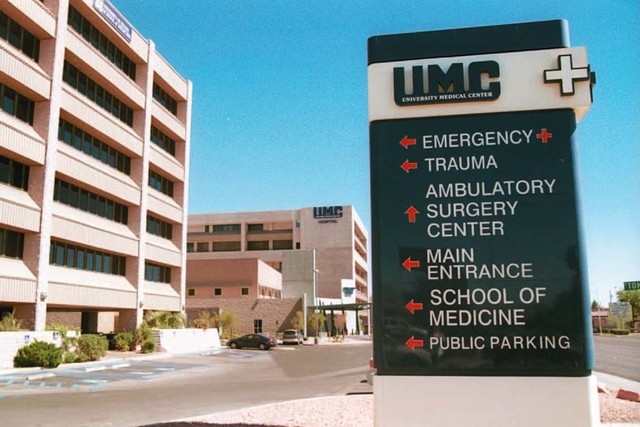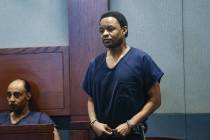UMC fights report in employee pay lawsuit
University Medical Center attorneys are fighting a critical report on the hospital tied to a class-action lawsuit from employees seeking compensation for working during unpaid lunch breaks.
The court-appointed special master, Daniel Garrie, wrote in the report that UMC executives repeatedly gave false or misleading statements during the process of providing documents and data relevant to the case. His 78-page report recommends a ruling in favor of about 600 plaintiffs suing under federal law.
But the Clark County public hospital’s attorneys argue that Garrie’s report is flawed and too opinionated, straying from its intended purpose of shepherding the process of discovery, when a sued party must hand over relevant records.
UMC attorneys blasted his report’s conclusions as a “lengthy, messy, and generally superficially written record.”
“Their dramatic flair does not compensate for their legal shortcomings, and these legal conclusions and their follow-up recommendations should be reversed,” UMC attorneys wrote in an objection filed this week.
The case was filed in U.S. District Court in 2012.
The original report cited multiple instances of UMC employees not clearly answering questions about data related to employee work hours, much of it from timekeeping systems.
The hospital, in attempting to defend its record, notes that it has turned in more than 60,000 pages of records to the plaintiffs. The county’s 47-page response calls the report “riddled with inappropriate editorialization, much of it negative towards UMC.”
Garrie’s report found the hospital lost or deleted electronic information likely relevant to the case that was stored on mobile devices, computers and a drive. The data included text messages and thousands of files.
“The level of intentional destruction of evidence by UMC shocks the conscience,” Garrie wrote in his report.
He also reported that UMC officials didn’t disclose several key timekeeping systems until three months after proceedings with the special master began. The hospital also had said it was unable to generate electronic spreadsheets from a time-keeping system, when it had already done so for a Department of Labor investigation.
Garrie wrote in his report that UMC executives “made statements ranging from misrepresentations to deliberate falsehoods, despite being given multiple opportunities to correct these statements. … This pervasive misconduct by UMC delayed these proceedings and substantially increased its costs.”
But UMC attorneys contend that the process wasn’t focused on solving the problems between the parties about evidence that needs to be handed over.
“Instead, UMC and its counsel were doomed to scurry about looking at various systems upon Special Master Garrie’s rapid-fire orders, often given without any grounding in the evidentiary needs of the lawsuit,” UMC’s response says.
Instead of getting help sorting out the issue, UMC argues, the hospital “was sent straight to its room with no supper for supposed wrongs committed…. This egregious result needs to be corrected.”
Garrie, a Seattle-based attorney licensed in three states, has experience as a special master, an expert witness and has knowledge of the timekeeping and payroll software systems that UMC uses, court records show. Both candidates for the job had agreed to an hourly rate of $385.
The county also doesn’t want to pay further fees associated with the work. So far, the costs have exceeded $300,000.
Attorneys for the plaintiff have about two weeks to file a response to the county’s latest motion.
The hospital serves indigents who cannot afford medical care and also has a trauma center and burn center. It has a staff of about 3,400 employees.
Contact Ben Botkin at bbotkin@reviewjournal.com or 702-405-9781. Find him on Twitter: @BenBotkin1.




























